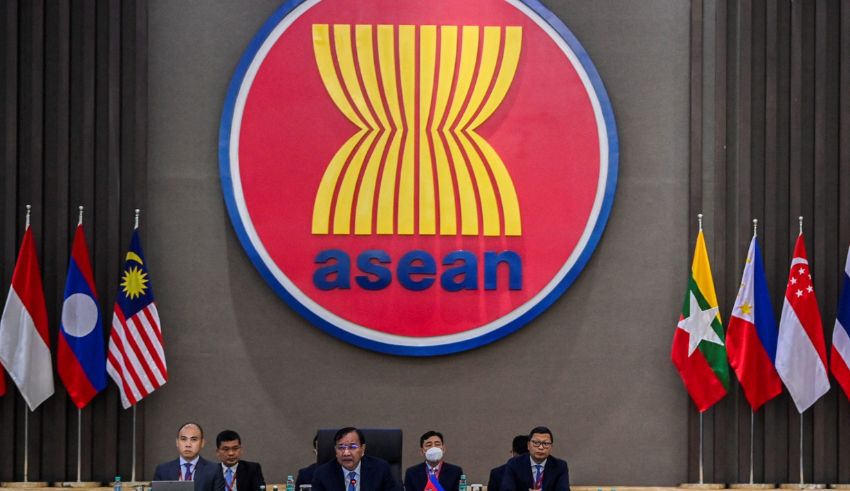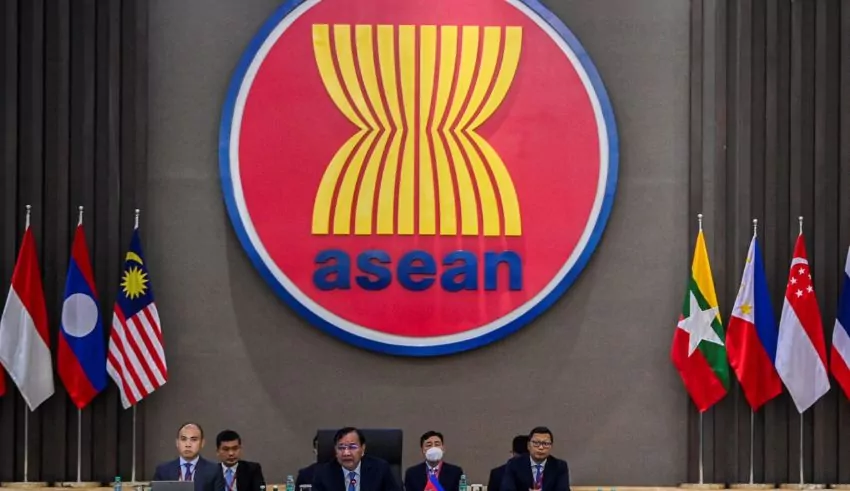

(C) East Asia Forum
As the crisis in Myanmar continues, ASEAN countries are approaching the conflict with caution, while the EU remains steadfast in its implementation of hard-hitting sanctions. The complex and delicate nature of the conflict has prompted different responses from regional players, sparking debates about the most effective approach to address the ongoing turmoil in Myanmar.
The Association of Southeast Asian Nations (ASEAN) has taken a soft and cautious stance on the Myanmar conflict following the February 2021 military coup. The country has been witnessing resurgence in the anti-military confrontations and civilian unrest in order to bring back democracy. But ASEAN is opting for diplomatic engagement and dialogue rather than punitive measures.
ASEAN’s non-interference principle has been a cornerstone of its approach, aiming to engage the military junta through constructive dialogue to find a peaceful resolution. But this soft approach has invited criticism from various quarters. Some argue it is insufficient to address the severity of the crisis and the military’s human rights abuses. Critics want ASEAN to prioritize the restoration of democracy and human rights in Myanmar, even if it requires more assertive actions.
EU’s Unyielding Sanctions
In contrast, the European Union has taken a hard-hitting approach toward Myanmar since the military coup. It has imposed a series of sanctions targeting the military leadership and its economic interests. Last week, the European Council imposed a seventh round of restrictive measures in view of the situation in Myanmar against six individuals and one entity. This is the EU’s response to the continuing escalation of violence, grave human violations and threats to the peace, security, and stability of Myanmar.
The EU also has restrictive measures in place like embargo on arms and equipment and exports restrictions on equipment for monitoring communications which might be used for internal repression, export ban on dual-use goods for the use by the military and border guard police, and the prohibition of military training and cooperation with the Tatmadaw.
However, ASEAN’s engagement approach is essential in maintaining channels for communication and influencing Myanmar’s military leadership positively. Regional analysts believe isolating Myanmar could further entrench the junta and make finding a resolution more challenging. Some advocate for stronger actions, including sanctions, to demonstrate a clear stance against the military coup and to protect the rights and freedoms of the people of Myanmar.
A more assertive response could serve as a deterrent against further military aggression. Integrating ASEAN’s engagement efforts with the EU’s targeted sanctions, tailored to minimize the impact on the general population, could present a more comprehensive strategy. Doing so, the international community would send a clear message to Myanmar’s military junta about the collective will to address the crisis and uphold democratic values and human rights.
South Korean President Yoon Suk Yeol has been removed from office due to issues concerning martial law. A significant shift…
On Thursday night, Milwaukee Bucks player Giannis Antetokounmpo made NBA history by becoming the first player to score 35 points,…
On Thursday, April 3, 2025 at 10:12 a.m. Beijing time, China made a successful orbit placing satellite launch of Tianping-3A…
SM Entertainment has formally ceased for Wendy and Yeri of Red Velvet. But this is not the end of their…
As President Donald Trump declared economic independence through new tariffs he placed significant harm on developing countries in Southeast Asia…
Once again crowned the world's best entrepreneurship nation in the Global Entrepreneurship Monitor (GEM) Report, the UAE has claimed the…
This website uses cookies.
Read More